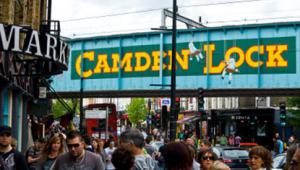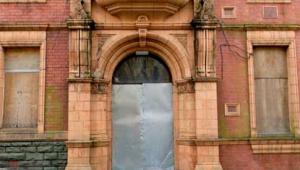Charles Keegan, head of land register completion at Registers of Scotland, told PF that not knowing what they own was “very clearly” costing authorities across Scotland money.
“Sometimes there are situations where, bizarrely, you have to prove that you don’t own something because it’s a liability,” he said.
“Some local authorities are better than others. There was a [2009 Accounts Commission] report which said that a lot of public bodies didn’t know what they owned, and that they didn’t have a property strategy. If you’re on the land register, you have a very clear asset management process. The evidence is there when you buy and sell and it’s updated.”
Keegan was speaking after addressing a Holyrood magazine conference on asset management in support of a Scottish Government drive to persuade all public bodies to use the Scottish Land Register by 2019. The target is designed to kick-start a registration process with the aim of having all property in Scotland mapped on the register by 2024.
At present, around 60% of titles and some 30% of the Scottish land mass are on the register, which was introduced in 1981.
The completion targets were set by legislation in 2012, although registration remains voluntary.
All changes in land ownership lead automatically to registration and, as of April this year, parties to a sale can no longer refuse to register. A 25% discount in the registration fee, which starts at £60 and varies with the value of the property, is in place until at least 2019.
So far, Registers of Scotland has held talks with more than 200 public bodies and a similar number of private landowners.
Ministers believe a comprehensive register will create clarity around the sensitive issue of land ownership in Scotland as well as speed up transactions and assist with community empowerment. It is also intended to help public bodies rationalise their property portfolios in line with budgetary pressures to sell or share surplus premises.
Keegan told PF the benefits of registration for public bodies included clarity over ownership rights and burdens.
“How can you value your whole estate if you don’t even know where your boundary is? This is a conversation we’re starting to have with people: if you don’t know what you own, how can you know the balance sheet value of it? And how do you know what the market value is?”
For public bodies, values can be negative as well as positive. Keegan gave the example of a disused railway tunnel in Edinburgh, now part of a popular public walkway: “The tunnel isn’t an asset – it’s a liability,” he said. “Who actually owns that? Who’s responsible for the maintenance? Who’s responsible for the health and safety records?
“Sometimes it’s really helpful to be able to say, ‘I’ve looked at the register and you may think I own it but I don’t’,” he added.
He added that carrying out a one-off survey of property records in preparation for registration could pay dividends in revealing opportunities for rationalisation, but stressed that public sector organisations could register properties one at a time as part of a review process.
“Many public bodies do have quite systematic records of what they own,” he said. “It’s about the interrogation of the system. You’re talking about public bodies that have often existed for decades or, in the case of local authorities, maybe even centuries, so it’s inevitable that sometimes records may be incomplete or out of date.
“It can be a hard sell at present to get public bodies to spend money on tidying up their records, but you may find out from that one-off examination that there are properties you don’t need that you could sell.”



















